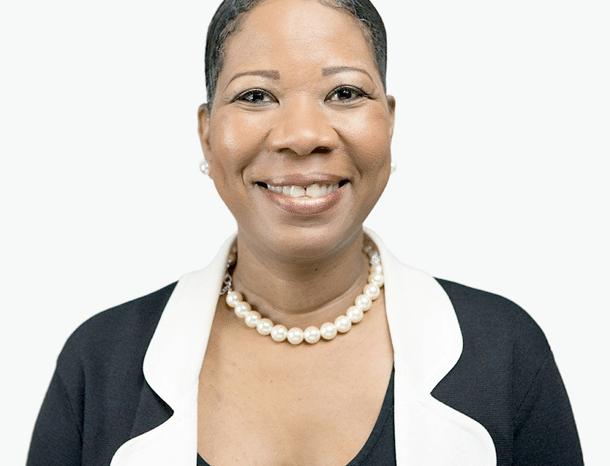What Is the All of Us Research Program?
All of Us is a new research program from the National Institutes of Health (NIH). The goal is to advance precision medicine. Precision medicine is health care that is based on you as an individual. It takes into account factors like where you live, what you do, and your family health history. Precision medicine’s goal is to be able to tell people the best ways to stay healthy. If someone does get sick, precision medicine may help health care teams find the treatment that will work best.
Q&A with Dr. Dara Richardson-Heron, Chief Engagement Officer, All of Us Research Program
Q: Can you please describe your role at the All of Us Research Program?
I was an inaugural member of the All of Us Research Program Advisory Panel, so it felt like a natural transition to step into my current role as chief engagement officer. All of Us has a goal to enroll and retain one million or more volunteers in this landmark effort to advance innovative health research, which may lead to more precise treatments and prevention strategies. My primary objective is to forge partnerships with research participants, health care professionals, and national and community-based organizations to raise awareness of the program and engage members, with a special focus on populations that have been historically underrepresented in research. Engaging and empowering people is something about which I am extremely passionate.
Q: Why is it so important to include communities that have historically been underrepresented in research?
Most studies and clinical trials have been conducted with the average white male participant. All of Us aims to be different. We want our program participants to reflect the rich diversity of the United States. We know that a truly effective pool of participants won’t all physically look the same; it will include people from all different backgrounds and walks of life. The more data we gather, the more we’ll know about what makes people unique, which may, in turn, pave the way for more customized health care approaches.
Minorities make up 38 percent of the US population. This number is expected to rise to more than 50 percent in the coming years. And now think about this statistic: the African American population is the second largest ethnic/racial minority group in the U.S., making up 13.3 percent of the total U.S. population (46.3 million people), yet African Americans contribute to only five percent of clinical trials nationwide. This is despite the fact that African Americans, for decades, continue to have the highest incidence, prevalence, and mortality rates from chronic and often preventable diseases such as heart disease, diabetes, obesity, hypertension, mental health, and HIV/AIDS.
We do not fully understand why these disease rates are so high in many underrepresented communities, and part of why we don’t understand is because we don’t have enough representation of all individuals in the research that will lead us to answers.
Q: The history of this field is not free of its mistakes. In fact, there have been some past transgressions in biomedical research and large-scale studies. What lessons were learned, and how will All of Us be different?
A: We recognize that many transgressions have occurred in research over the years, ranging from Henrietta Lacks to the Tuskegee Syphilis Study. These egregious abuses have understandably led to many groups, especially minority groups, being hesitant or skeptical when considering whether or not to share their medical information or participate in research.
While none of us can wave a magic wand to erase the past, our job is to genuinely, and with overwhelming respect and empathy, acknowledge the legitimacy, fear, concerns, and mistrust these unfortunate historic actions and realities instill in many of the communities we are attempting to engage. We hope to make it abundantly clear – both in our words and our actions – that the All of Us Research Program is focused on authentically engaging participants in a way that respects their interests, values, and needs.
And most importantly, we must make it absolutely clear that our mission is to accelerate health research and medical breakthroughs, enabling individualized prevention, treatment and care, not just for some us, but for all of us!
Excerpt from the Precision Medicine World Conference





